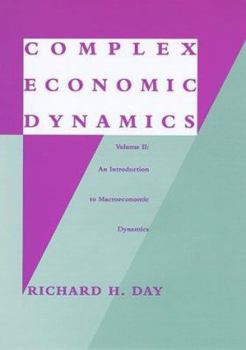Complex Economic Dynamics: An Introduction to Dynamical Systems and Market Mechanisms
In these two volumes Richard Day shows that, far from being a passing fancy in economic research, complex dynamics emerge naturally at the very heart of the subject. Richard Day was one of the first economists to recognize the importance of complex dynamics, or chaos theory, in economics and to systematically explore whether a mathematical existence of such behavior could be established in standard models of economic theory. In these two volumes he shows that, far from being a passing fancy in economic research, complex dynamics emerge naturally at the very heart of the subject.The three parts of Volume I form a logical sequence, although each can be read and understood apart from the others. Part I provides a nontechnical introduction to the basic facts of economic change and the theoretical ideas that describe them. Part II surveys the mathematical tools used in subsequent chapters. Part III begins the explanation of microeconomic change in competitive markets in formal theoretical terms. Day's analysis is accompanied by numerous illustrations and examples.Volume II is concerned with macroeconomic dynamics and looks at the economy as a whole. Separate parts are devoted to business cycles, economic growth, and economic development, followed by a survey of the history and current state of dynamic economics. The book concludes with the author's reflection on the implications of complex dynamics for economic theory, for quantitative research, and for government policy.
Format:Hardcover
Language:English
ISBN:0262041413
ISBN13:9780262041416
Release Date:June 1994
Publisher:MIT Press
Length:333 Pages
Weight:1.46 lbs.
Dimensions:1.0" x 6.3" x 9.3"
Age Range:18 years and up
Grade Range:Postsecondary and higher
Customer Reviews
0 rating





